8 Foods that Bloat Your Stomach
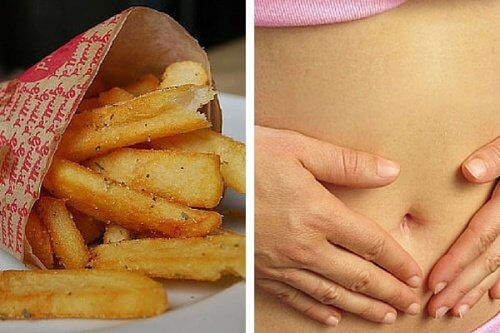

Reviewed and approved by the doctor José Gerardo Rosciano Paganelli
Everyone longs to have a flatter stomach and a lot of people fight to achieve it using diet and exercise. But just when everything seems to be going well, suddenly you find you’re bloated, and all your clothes are too tight. There are certain foods that bloat your stomach and in today’s article we’ll be talking about them.
This can be very bothersome for some people as it makes them look fatter than they really are. It’s not only a matter of aesthetics. We should also be aware that this kind of inflammation is the result of an overworked digestive system. This happens when you eat too much food or food that irritates your body.
More importantly, in addition to that swelling and other uncomfortable symptoms like gas that you experience, it might also cause pain. This is why it’s a good idea to take note of the foods that bloat your stomach and avoid them in your diet.
1. Foods that bloat your stomach: High fat foods
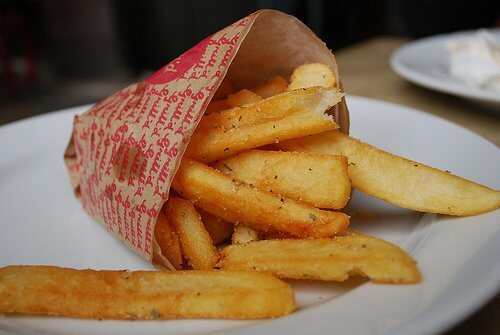
Visit this article: 8 foods to treat inflammation
2. Carbonated beverages
Sodas and other carbonated soft drinks are favorites among many people thanks to their high sugar content. This, however, can eventually can lead to addiction. The bad news is that the carbon dioxide hits your stomach very hard, causing symptoms like heartburn and bloating.
3. Cruciferous vegetables
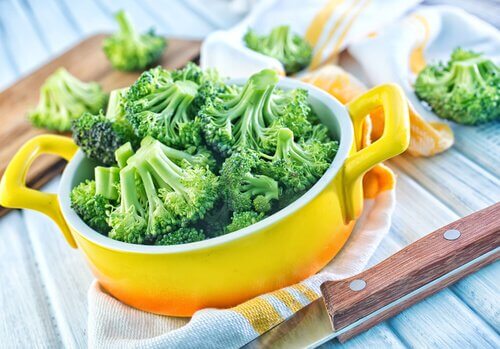
This, coupled with their high content of fiber, makes these vegetables trigger stomach bloating that’s hard to treat. To avoid this, include them in your diet in moderation, combined with other foods that help reduce their effects on your body.
4. Salt
Excessive salt intake is one of the main causes of fluid retention, and it’s closely related to problems with inflammation and bloating. Reducing your salt intake is not just good for your abdominal region – it has positive effects on the overall health of many of your major organs.
5. Refined carbohydrates
Another of the foods that bloat your stomach are refined carbohydrates. The reason is that they have been subjected to a process that removes the fiber they contained, turning them into empty calories that are low in nutrients. One of the worst culprits is white flour, which is found in very common foods like pizza, breads, pastries, and more.
In fact, some people are intolerant to these foods and can have allergic reactions when they eat them.
6. Spicy foods
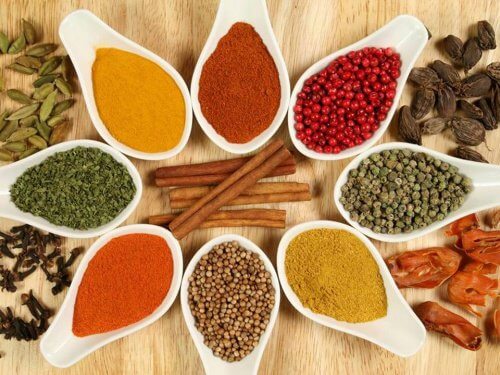
That’s why it’s better to consume these in moderation. They include:
- Black pepper
- Nutmeg
- Chili powder
- Mustard
- Vinegar
7. Dairy products
People who suffer from lactose intolerance should avoid consuming dairy products, even though they might seem so appetizing. It can impede their digestion, causing bloating, cramping, and diarrhea.
See also: Benefits of almond milk
8. Beans
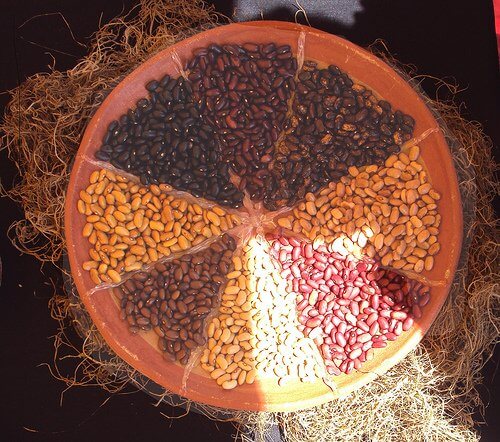
While you shouldn’t eliminate them from your diet completely, try to reduce your intake and make sure to cook them thoroughly before eating. You can get as much protein content from substituting fish, chicken, and soy products.
Because all 8 of these foods can lead to bloating, it’s best to avoid eating them in excess to avoid any of these distressing symptoms. If the problems persist, however, it’s a good idea to consult with your doctor because it could be a sign of a more serious disorder.
All cited sources were thoroughly reviewed by our team to ensure their quality, reliability, currency, and validity. The bibliography of this article was considered reliable and of academic or scientific accuracy.
- Agrawal A, Whorwell PJ. Review article: abdominal bloating and distension in functional gastrointestinal disorders–epidemiology and exploration of possible mechanisms. Aliment Pharmacol Ther 2008; 27: 2-10.
- Azpiroz F, Malagelada JR. Abdominal bloating. Gastroenterology 2005; 129: 1060-78.
- Manichanh C, Eck A, Varela E, Roca J, Clemente JC, González A, et al. Anal gas evacuation and colonic microbiota in patients with flatulence: effect of diet. Gut 2014; 63: 401-8.
- Salvioli B, Serra J, Azpiroz F, Lorenzo C, Aguade S, Castell J, et al. Origin of gas retention and symptoms in patients with bloating. Gastroenterology 2005; 128: 574-9.
This text is provided for informational purposes only and does not replace consultation with a professional. If in doubt, consult your specialist.








